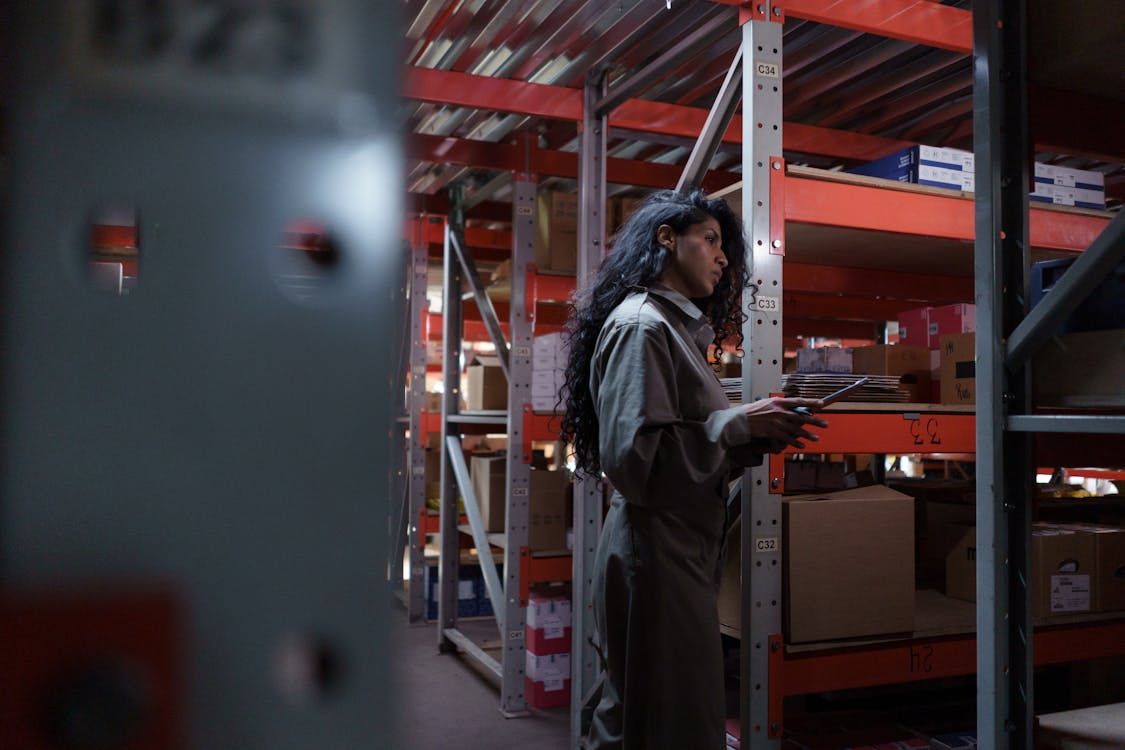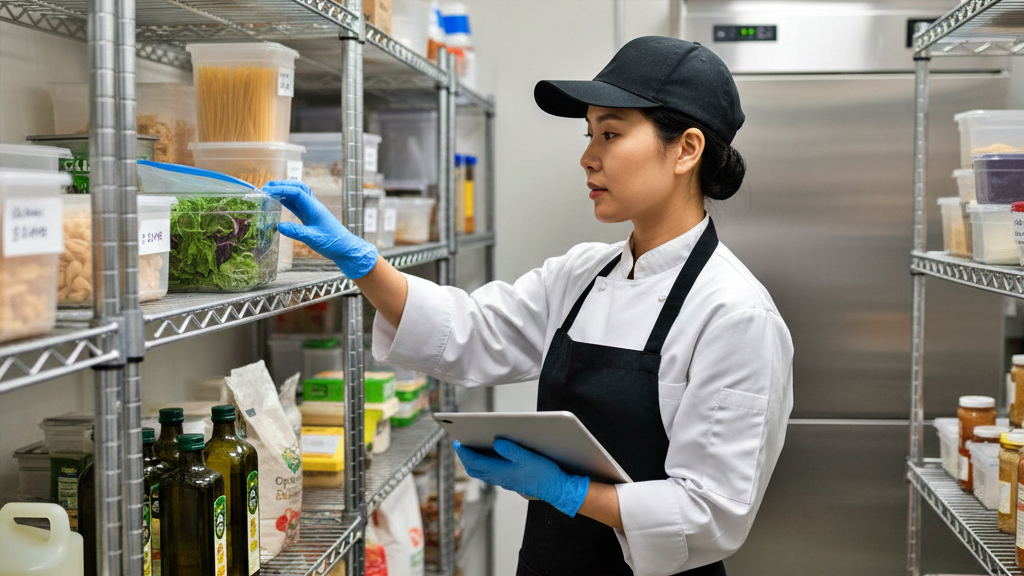Types of Daily Restaurant Checklists
Discover essential daily restaurant checklists: kitchen prep, cleanliness, and servi

Running a restaurant effectively involves balancing the big picture with meticulous attention to detail. Daily checklists are essential tools that help restaurant owners and operators maintain operational efficiency, ensure compliance, and provide excellent customer service. These checklists cover various aspects of restaurant management, including opening and closing routines, inventory management, equipment maintenance, and health and safety regulations.
Essential Daily Checklists for Restaurant Operations
Opening Checklist
To ensure a smooth start to the day, a comprehensive restaurant opening checklist is crucial. It should include tasks like auditing the cleanliness of the premises, preparing the POS system, and conducting a pre-shift meeting. This checklist can significantly increase customer satisfaction by ensuring that every detail is perfect before the doors open.
Closing Checklist
At the end of the day, a structured closing checklist helps secure the restaurant and prepare it for the next business day. This includes cleaning, restocking, and shutting down equipment. Implementing a thorough closing process can help reduce operating and labor costs by ensuring tasks are completed efficiently and on time.
Cleaning Checklist
A daily cleaning checklist is essential for maintaining the hygiene and appeal of your restaurant. Regular cleaning not only complies with health regulations but also enhances customer engagement by providing a pleasant dining environment. Additionally, a well-maintained space boosts productivity by allowing staff to work in a clean and organized environment.
Related: Using Daily Checklists on the OpsAnalitica Platform as Field Team Force Multiplier
Inventory and Stock Management
Daily Inventory Checklist
Efficient inventory management is critical to controlling costs and ensuring a steady supply of stock. A daily inventory checklist helps you consistently track inventory levels, allowing you to order supplies as needed and minimize waste. Key tasks include organizing stock, performing accurate stock takes, and using an inventory consumption sheet to monitor usage and waste, ultimately reducing operating and labor costs.
Food and Beverage Stock
Managing your food and beverage stock effectively can significantly increase customer satisfaction. This involves assessing stock shelves, diligently counting and measuring stocked items, and ensuring everything is properly labeled and dated. By integrating sales data with inventory records via your POS system, you can optimize stock levels and reduce food waste.
Non-Food Inventory Control
For non-food items, maintaining an organized inventory ensures that all necessary supplies are available without overstocking. Regular checks and labeling help maintain order and prevent financial losses from expired or unnecessary stock. This systematic approach not only boosts productivity but also supports compliance with safety regulations, ensuring a smooth operation.
OpsAnalitica can help streamline these processes, enhancing efficiency and customer engagement while ensuring your restaurant operates at its best.
Related: The Compelling Evidence that Daily Checklists Increase Sales

Equipment and Maintenance Protocols
Daily Equipment Checks
Ensuring that all restaurant equipment is functioning correctly is crucial for smooth operations. A daily equipment checklist should include tasks such as visual inspections, verifying that equipment is plugged in properly, and cleaning around key appliances. Regular maintenance not only prevents unexpected breakdowns but also ensures optimal performance, which can significantly boost productivity and reduce operating costs.
Preventative Maintenance Tasks
Preventative maintenance is key to extending the life of your equipment and avoiding costly repairs. This includes scheduled deep cleaning, checking and replacing worn parts, and adhering to manufacturer's maintenance protocols. By implementing these tasks, you can increase customer satisfaction by avoiding downtime and ensuring that every service runs smoothly.
Related: Double Checks Save Customer Satisfaction
Emergency Equipment Handling
Knowing how to handle equipment emergencies is essential. This involves training staff on emergency procedures, maintaining a well-stocked first aid kit, and ensuring all safety equipment is accessible and functional. Effective management of these situations not only complies with local regulations but also safeguards the well-being of both staff and patrons, enhancing overall safety and compliance.
By adopting the OpsAnalitica Way, which emphasizes centrally managed daily checklists and thorough audits, you can ensure operational excellence and guest satisfaction.
Health and Safety Compliance

Ensuring the health and safety of both customers and staff is paramount in the restaurant industry. This section covers the essential daily checklists that help maintain compliance and safeguard well-being.
Daily Health Checks
Start each day with a comprehensive health check to ensure all staff are fit for work. This includes symptom assessments and temperature checks. Implementing a consistent routine helps in early detection of potential health issues, reducing the risk of spreading illnesses.
Safety Equipment Inspections
Regular inspections of safety equipment are crucial. Check fire extinguishers, first aid kits, and other safety gear to ensure they are in good working condition. This not only complies with local safety regulations but also prepares your staff for emergency responses.
Temperature Control in Food Safety
Proper temperature control is crucial for maintaining food safety. It involves monitoring and recording temperatures at various stages, including holding, reheating, and cooling of food items. These procedures, often referred to as temperature logs or temp checks, are typically conducted multiple times a day, especially before meal periods, to ensure that the food is within safe temperature ranges before it is served to guests. Maintaining the correct temperatures is essential as improper food temperature is the leading cause of foodborne illness outbreaks.
Sanitation and Cleaning Practices
Safety in food preparation extends beyond temperature control to include rigorous sanitation and cleaning practices. Effective use of sanitizers, along with proper cleaning of dishes and utensils, plays a vital role in preventing contamination and the spread of pathogens. Regularly scheduled sanitation checks ensure that all equipment and surfaces meet health standards, reducing the risk of illness. These sanitation procedures are critical components of daily food safety logs, helping to uphold high standards of hygiene and safety in food service environments.
Compliance with Local Regulations
Stay updated with local health and safety regulations to avoid penalties and ensure uninterrupted operations. Regular training sessions for your staff on compliance matters are essential.
OpsAnalitica can help you increase customer satisfaction by maintaining a clean and safe dining environment, reduce operating and labor costs through efficient safety practices, improve marketing and customer engagement by promoting your commitment to safety, and boost productivity by ensuring all safety measures are met efficiently.
Ensuring health and safety compliance is crucial for any industry, especially in sectors like healthcare, senior living, and food services where the stakes are exceptionally high. At OpsAnalitica, we leverage AI and predictive analytics to help organizations streamline their operations and maintain the highest standards of safety and efficiency. Discover how our OpsAnalitica platform can transform your compliance management by scheduling a demo today.
Mastering Daily Checklists for Restaurant Success
Understanding and implementing various types of daily restaurant checklists is crucial for the smooth operation of any dining establishment. These checklists help ensure that every aspect of the restaurant, from opening to closing, is managed efficiently. They cover everything from cleanliness and inventory management to equipment maintenance and staff coordination. By adhering to these structured guidelines, restaurant owners and managers can enhance operational efficiency, maintain high standards of food safety and customer service, and ultimately contribute to the restaurant's success. Whether you use them as provided or adapt them to fit your specific needs, these checklists are invaluable tools in the pursuit of operational excellence and customer satisfaction.
In addition, you want to use a system that allows you to delegate checklists to employees, and allows employees to work on one checklist simultaneously. Restaurants run on a daily cadence based on meal periods, a lot of checklists need to be done at very specific times. This allows multiple people to work together on those checklists to get them done quicker, which is a huge advantage that only OpsAnalitica offers.
Related: How to Implement Management by Checklist with follow-up in your Restaurants
.webp)



